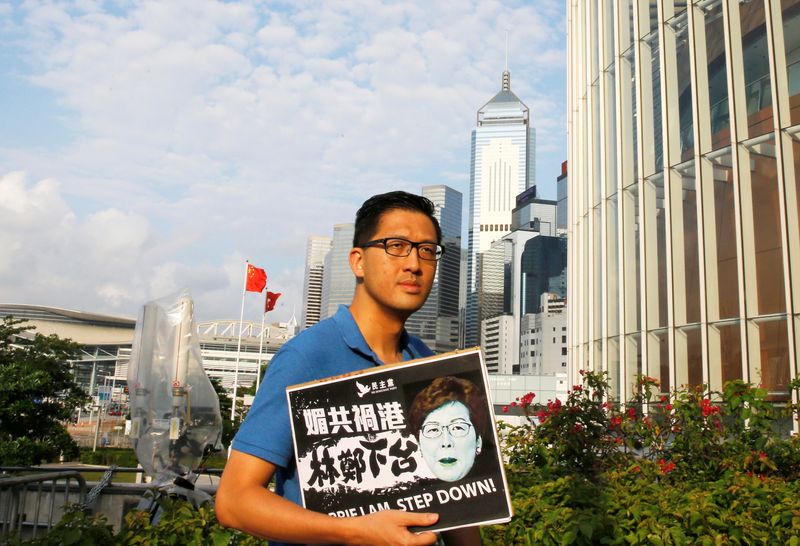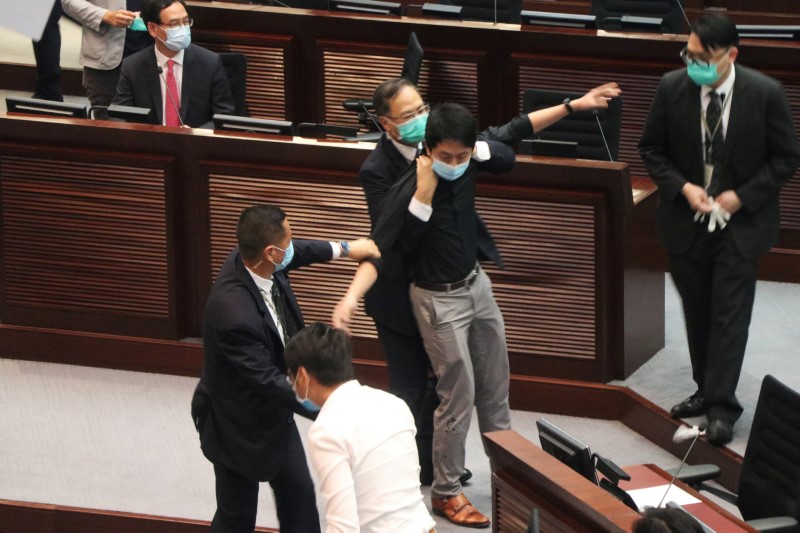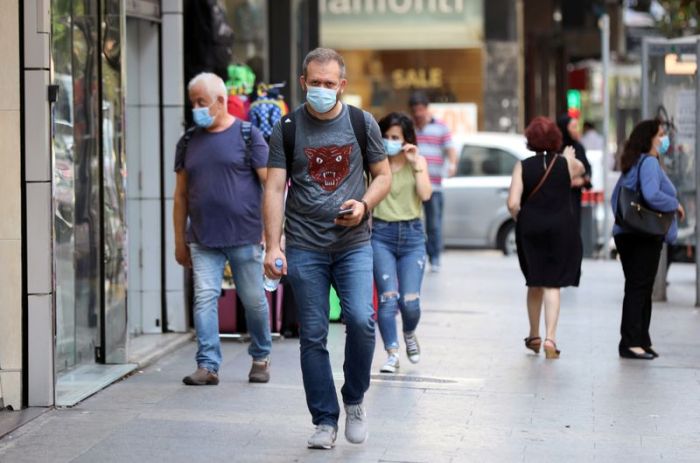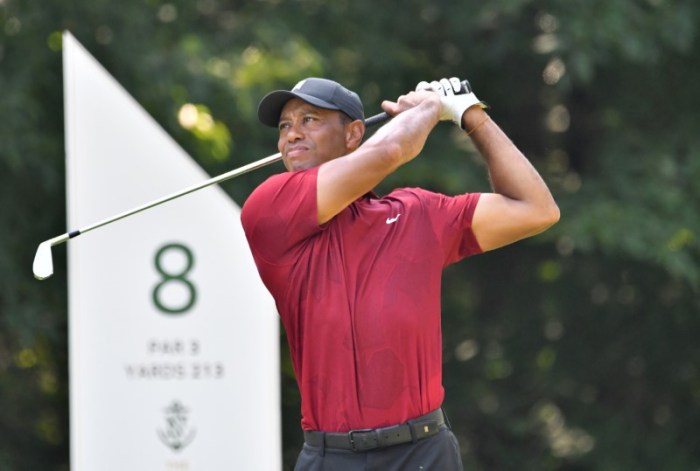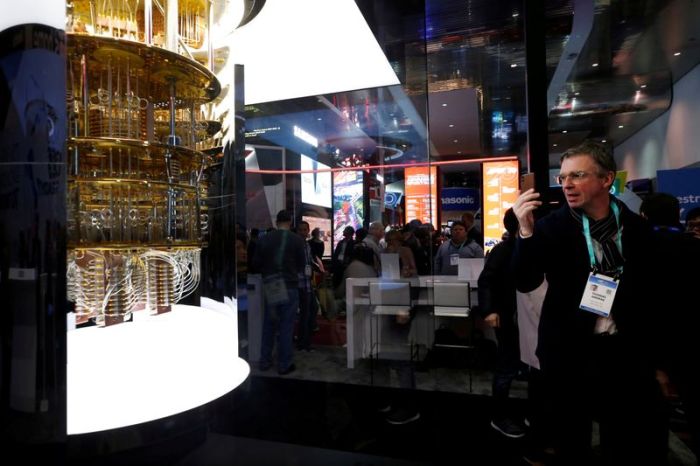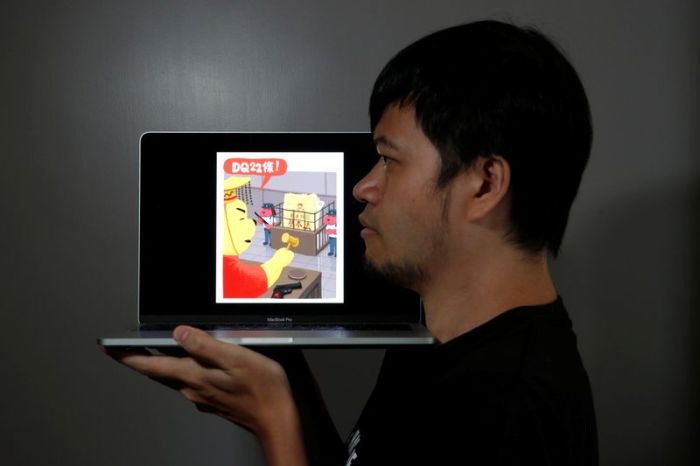HONG KONG (Reuters) – Hong Kong police arrested two opposition lawmakers on Wednesday over anti-government protests in July last year, one of whom was suspected of rioting during an incident in which he was attacked by a mob.
Police said Democratic Party lawmakers Lam Cheuk-ting and Ted Hui were among 16 people arrested.
Lam was arrested on suspicion of rioting on July 21, 2019, when a mob of over 100 men wielding sticks and poles attacked pro-democracy protesters, journalists and bystanders at a train station in the Yuen Long district, near the mainland border.
Senior Superintendent Chan Tin-chu told a news conference that the police thought the attacks came from both the white-shirted mob and black-clad protesters, and Lam’s presence aggravated the situation.
Lam was hospitalised after being wounded in the face as he livestreamed the attack on his Facebook page.
“It does not mean you are free from responsibility if you’re doing live (streaming),” Chan said, without elaborating on how his actions may have amounted to rioting.
An administrator for Lam’s twitter account rejected the accusation.
“Admin: Before being attacked by the armed mobs, Lam has already called the police to report the attack. However, the police failed to arrive promptly and Lam was injured by the assailants 20 minutes later,” read the tweet.
Democratic Party chairman Wu Chi-wai said police were “reversing right and wrong”, while Yuen Long district councilor Tommy Cheung, a pro-democracy politician, accused police of rewriting events.
Before Wednesday, police had arrested 44 people believed to had taken part in the mob attack, eight of whom had been charged with rioting. Police said 13 more were arrested on Wednesday for rioting, some of whom may have had links with criminal gangs known as triads.
While Hong Kong’s triads – ancient secret societies that morphed into mafia-style underworld operations – have a lower profile than in the past, they remain entrenched in some grittier districts and in rural areas.
Activists accused police of colluding with triads and being slow to respond on July 21. The police denied that and said its slow response was partly caused by protests elsewhere in the city where forces had been deployed.
Lam, along with Hui, was also accused of being involved in a protest on July 6 in the Tuen Mun district, where amid rising anti-Beijing sentiment protesters marched against the “noise pollution” caused by middle-aged women singing and dancing to pop songs in Mandarin, the language spoken in mainland China. Hong Kong people speak mainly Cantonese.
Police says Hui forcefully took a phone from someone filming protesters.
Hong Kong returned to Chinese rule in 1997 under a one country, two systems agreement with its former colonial master Britain that promised it wide-ranging freedoms unavailable on the Communist Party-ruled mainland.
The protests last year were fuelled by perceptions that Beijing was tightening its grip on those freedoms, which authorities have denied.
They began with peaceful marches against a since-withdrawn bill that would have allowed extraditions to mainland China, but clashes between police and protesters became more violent over the following months.
Critics say a new national security law imposed by Beijing on Hong Kong on June 30 has pushed the city onto a more authoritarian path, while its supporters say it will bring stability after a year of unrest.
The law allows for anything China considers to be secessionist, subversive, terrorism or collusion with foreign forces to be punished with up to life in prison.
(Reporting by Carol Mang, Jessie Pang, Yanni Chow and Marius Zaharia; Editing by Simon Cameron-Moore)

